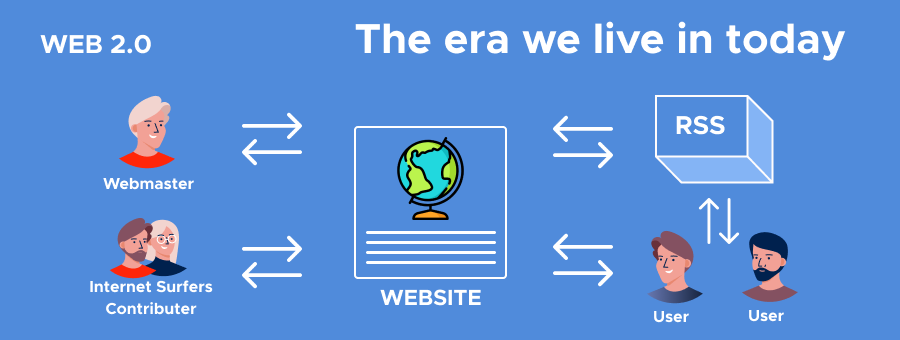 In the ever-evolving landscape of the internet, the buzz surrounding the next generation, Web4, is growing louder. As the world embraces Web3, with its decentralized ethos and blockchain technology, it seems that the digital realm is already looking ahead.
In the ever-evolving landscape of the internet, the buzz surrounding the next generation, Web4, is growing louder. As the world embraces Web3, with its decentralized ethos and blockchain technology, it seems that the digital realm is already looking ahead.
In this article, we delve into the concept of Web4, separating fact from speculation, and examine how this proposed iteration of the internet might revolutionize our online experience.
Web Evolution: From Read-Only to Interactive
The internet’s evolution has been marked by distinct phases, each introducing new innovations and challenges. Web1, often referred to as the “read-only web,” was a static network of hyperlinked web pages where users could only consume information. This was the web’s inception, and it seems worlds apart from the dynamic, interactive platform we know today as Web2.
Web2 brought about a shift, making the internet a place where users could contribute, create content, and interact. The advent of cloud computing, social media, and online shopping revolutionized the way we use the internet, giving rise to blogs, forums, and mobile apps. However, it also raised concerns about data privacy and centralized control.

Web3: The Decentralized Revolution
Web3, also known as the semantic web, focuses on decentralization, giving users more control over their assets, data, and online identity. Blockchain, cryptocurrency, and NFTs play pivotal roles in the Web3 ecosystem. Decentralized finance (DeFi) empowers users with trustless, permissionless access to financial services, disrupting the traditional financial sector.

Web4: The Symbiotic Web
Web4, often referred to as “The Symbiotic Web,” envisions a more connected, intelligent, and personalized internet experience, driven by emerging technologies, particularly artificial intelligence (AI). The possibilities it presents are tantalizing, but it remains a theoretical concept, shrouded in speculation.
AI in Web4 is expected to create dynamic and adaptable machine learning ecosystems, offering users more personalized and efficient online experiences. However, the introduction of Brain-Computer Interfaces (BCIs) raises ethical and security concerns, as it allows users to interact with computers through their thoughts, blurring the lines between the digital and physical worlds.
Expanding on the concept of the Metaverse, Web4 aims to offer new opportunities for social interaction, entertainment, and economic activities through blockchain-powered virtual assets. While these features are already present in Web3, Web4 proponents suggest it will take them to the next level.

Is Web4 Truly Different from Web3?
Web4’s goals seem eerily similar to Web3, with both aiming to create decentralized applications (dApps) running on decentralized infrastructure, eliminating intermediaries and centralized control. While Web3 has laid the foundation for user ownership of data and decentralized applications, Web4 may further enhance the user experience by integrating advanced technologies.
Pros and Cons of Web4:
Web4 presents numerous potential benefits, such as enhanced user experiences, improved efficiency through AI automation, and expanded possibilities for cryptocurrencies, particularly in the realm of DeFi. However, it also faces challenges related to scalability, security, and ethical implications regarding AI and BCIs.
Overall, Web4 is the next exciting frontier in the world of the internet, promising a more interconnected, intelligent, and personalized digital experience. While some speculate on its similarities to Web3, the potential integration of AI and BCIs hints at a future where the boundaries between the physical and digital worlds blur, offering possibilities we can’t yet fathom. As the digital landscape evolves, we must remain vigilant, addressing challenges and ethical concerns as we explore the uncharted territory of Web4.



